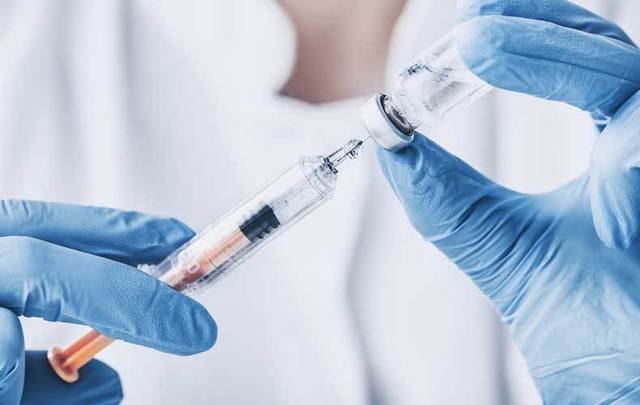Ireland's Health Minister Simon Harris said that a second wave of COVID-19 during flu season "could present a significant challenge."
Ireland is set to make the flu vaccine available free of charge to children and at-risk groups this year.
Read More: Irish Health Minister tells anti-vaxxers they need to "cop on"
According to Ireland’s Department of Health, children aged 2 - 12 years inclusive will be able to receive the vaccine free of charge and groups that are defined as high-risk by the Health Service Executive (HSE), aged 6 months - 69 years inclusive, can also receive the vaccine for free.
All people over the age of 70 in Ireland can already receive the flu vaccine free of charge.
On May 18, Ireland’s Minister for Health Simon Harris said: “A resurgence of COVID-19 during the coming flu season could present a significant challenge to the delivery of healthcare services in the coming winter.
“That is why officials from my department have been working closely with the HSE to put in place an expansion of the seasonal influenza vaccination programme for winter 2020/21.
“Flu is a potentially fatal illness and I want to ensure that the most vulnerable in our communities are protected.
“When the time comes, I will be strongly encouraging those from at-risk groups to get vaccinated to protect themselves and, in the case of health care workers, those they care for, from exposure to the flu.
“The flu vaccine is the only defence against the flu and is the best option for vulnerable people against the life-threatening complications of flu."
Read More: Irish researcher says existing vaccine could help prevent coronavirus
According to The Irish Times last year, the HSE already provided the flu vaccine for free, but prices could range from €20 to €50 in some GP clinics and pharmacies. The vaccine was free of charge for those over 10 years old who are in the categories for whom vaccination is strongly recommended and have a Medical Card, Doctor Visit Card, Health Amendment Act Card (HAA) or the 2015A card which is issued under the Redress for Women Resident in Certain Institutions Act 2015.
Ireland offers the flu vaccine between early October and April each year. The HSE says that the flu viruses that circulate change every year, so patients need to get a new vaccine each year.
In a tweet on May 18, Harris added that making the flu vaccine more widely accessible is "really important in the context of COVID-19:"
I have decided to make flu vaccine free to all children aged 2-12 this year & all of those in the defined at-risk groups from 6 months to 69 years. All persons aged over 70 already have access without charges. This expanded free access is really important in context of #Covid19
— Simon Harris TD (@SimonHarrisTD) May 18, 2020
Taoiseach Leo Varadkar supported the move, saying it could "save hundreds of lives:"
This is a significant announcement. We can save hundreds of lives this winter and every winter by a much greater uptake of the flu vaccine. This matters more as we need to avoid a second wave Covid concurrent with the flu season https://t.co/adE7pf9vcL
— Leo Varadkar (@LeoVaradkar) May 18, 2020
The HSE strongly recommended the influenza vaccine for:
Persons aged 65 and over
Pregnant women (vaccine can be given at any stage of pregnancy)
Adults and children aged 6 months and older with a long-term health condition such as:
- chronic heart disease, including acute coronary syndrome
- chronic liver disease
- chronic renal failure
- cancer patients
- chronic respiratory disease, including chronic obstructive pulmonary
- disease, cystic fibrosis, moderate or severe asthma or bronchopulmonary
- dysplasia
- chronic neurological disease including multiple sclerosis, hereditary and
- degenerative disorders of the central nervous system
- diabetes mellitus
- down syndrome
- haemoglobinopathies
- morbid obesity - that is, body mass index of 40 or over
- immunosuppression due to disease or treatment, including asplenia or
- splenic dysfunction
- cancer patients
Children aged 6 months and older:
- with moderate to severe neurodevelopmental disorders such as cerebral palsy and intellectual disability
- on long-term aspirin therapy (because of the risk of Reyes syndrome)
Residents of nursing homes and other long stay institutions
Healthcare workers including all GP practice staff
Carers and household contacts of people with increased medical risk
People with regular contact with pigs, poultry or waterfowl
Read More: COVID-19 vaccine may be ready by September says Oxford scientist




Comments